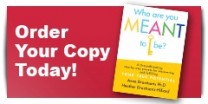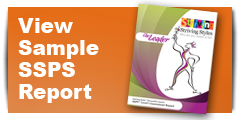ORGANIZATIONAL AND BUSINESS
Striving Styles and Teamwork
By understanding the different needs, approaches, strengths and weaknesses of each of the Striving Styles, the organization can maximize a team’s effectiveness by harnessing the natural energy that is engaged when individuals can meet their own needs through teamwork.
A team is an integral part of any organization. It consists of a group of two or more people working together to achieve a specific task or outcome. Teams are found in many settings—businesses, educational institutions, and community organizations. Regardless of the nature or setting of a team, understanding the needs and personality style of your fellow team members can help you function better.
Successful teamwork is not about mastering subtle, sophisticated theories, but rather about embracing common sense with uncommon levels of discipline and persistence. Ironically, the teams that succeed do it when they don’t stop attending to the needs of the individuals that are integral parts of the team. By identifying and acknowledging the predominant need of each individual on the team, members can overcome the natural human tendencies (conflict, competition, envy) that make teamwork so elusive and accomplish more than any mere group of individuals could ever imagine.
The Striving Styles System allows us to understand the predominant need that drives the behaviour of different personalities. It is not abilities or skills. We can always modify our behaviour to adapt to how we are expected to behave on a team so that it looks like we are cooperating. However, we cannot do this indefinitely. When individuals are not able to meet their need, they start acting out, shifting to self-protective behaviours which get in the way of successful teamwork. Unfortunately, individual needs are rarely addressed on teams paving the way for the expectation to conform and other unconscious power dynamics to get in the way of healthy team development.
There is a “norming” that occurs as a natural stage of team development. This does not mean conforming. It is the recognition that “I can get my needs met” on the team and support my team members to do so as well. At this stage, the team starts to get traction as an entity. If team members are unable to meet their needs, the team will be held in the “storming” phase, creating team dysfunction, rather than movement toward successful functioning.
Recognizing that individual needs do not go away just because of a team environment provides the opportunity to integrate all needs into the working mechanism of the team. By understanding the different needs, approaches, strengths and weaknesses of each of the Striving Styles, the organization can maximize a team’s effectiveness by harnessing the natural energy that is engaged when individuals can meet their own needs through teamwork.
An understanding of the Striving Styles; your own and that of others, can help team members open themselves to different perspectives and more effectively solve problems, resolve conflicts and improve collaboration and team cohesiveness. Analyzing Striving Style composition of the team can help finding and addressing its deficiencies, insuring it is not one-sided, overlooking the aspects that other styles would have seen and have addressed.
The Striving Styles System can help to:
• Identify the individual needs that must be met to engage team members fully
• Identify your team’s resources, strengths, as well as its weaknesses and deficiencies
• Assess self-protective behaviours of team members that get in the way of team success
• Leverage the similarities and differences in your team members
• Work around – or minimize – potential weak points
• Identify an action plan to improve your effectiveness in a team
• Identify steps to improve team performance
• Build bridges in communication with and between various team members
• Understand the dynamics of the team as a group
For more information about Striving Styles and Teamwork, contact our office at 416.406.6969.












0 Comments